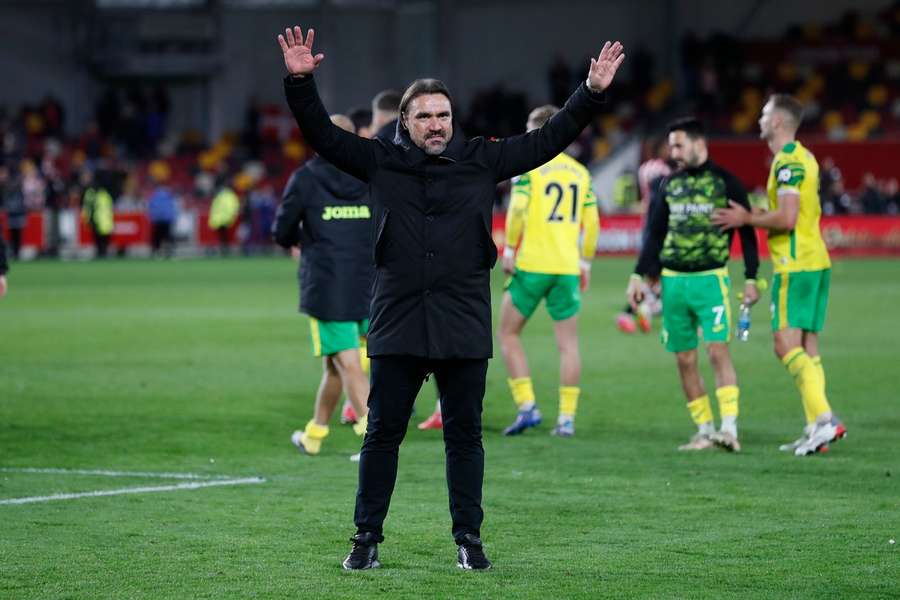Leeds United set for another exhilarating ride with Daniel Farke at the helm

This week, Leeds United confirmed the appointment of Daniel Farke as their new head coach.
Farke returns to England a year and eight months after being sacked by then-Premier League side, Norwich City. During that time, the 46-year-old took charge of Krasnodar in Russia - but lasted just two months before the invasion of Ukraine led to his departure by mutual agreement.
He then joined Bundesliga side Borussia Monchengladbach in the summer, but was relieved of his duties last month following an underwhelming campaign in which they finished 10th.
Yet, his experience in the Championship, which includes helping Norwich win the league by five points in 2019, and by six two years later, is reportedly said to have been crucial in securing him the role at Leeds ahead of other standout candidates.
Farke arrives at Elland Road with the same backroom staff that he had with him at Gladbach; assistant Eddie Riemer, opposition analyst Christopher John and head of performance Chris Domogalla.
That quartet also masterminded both promotions at Norwich. This hints that we may see him deploy similar tactics at Leeds to what helped him twice successfully seal the Championship crown at Carrow Road. But what are the fundamentals of his coaching philosophy and what can Leeds fans expect from their team under his guidance next season?

With the Canaries, Farke was praised for implementing an attractive and dynamic style of play, focusing on possession-based football, but with purpose. He liked to see his team take control of the ball, but he didn’t like to see possession without intention.
“We have several principles and one is that I don’t like horizontal passes in the game,” said Farke back in 2021 while Norwich boss. “Square passes are actually not allowed because it makes no sense and they are also unbelievably difficult to save if you lose the ball.
“If you play the ball on the angle and you lose it, it is possible to win the next duel, but if you play a horizontal pass then no one is there to save the ball if there is a mistake. For that, horizontal passes are never allowed in my game — only in the case that they can promise it is a 100 per cent pass that reaches your team-mate.”
In that 2021/22 season, the second in which Norwich were crowned champions under Farke’s leadership, the Canaries topped the possession charts while also crucially ranking first for the highest number of progressive passes made. They also completed more through balls than any other side in the division.
Norwich usually lined up in a 4-2-3-1 shape, as did Gladbach for most of last season, suggesting we’ll see the same at Elland Road. Farke likes this shape for several reasons.
In the shape, the defensive line is pushed up high with full-backs squeezed up the pitch to help create a shape that better resembles a 2-3-5 in possession. Wide attackers drift into more central areas to receive central passes in dangerous areas, while the advanced wing-backs help to provide the width.
The effectiveness of the shape is well illustrated by the fact in the 2020/21 season, Farke’s primary creative force Emi Buendia finished the campaign having received more passes in the attacking third than any other Championship player, while Norwich wing-back Max Aarons remarkably ranked fifth in this same department.
En route to their title success, Norwich went on to register the most shots, have the most efforts on target and accumulate the highest Expected Goal (xG) total in the division (76.9).
All of this highlights Leeds fans could be set for another exhilarating ride watching high-octane dominant football - much like what they enjoyed under club hero Marcelo Bielsa en route to their own Championship title success in 2020.
The front-footed nature of Farke’s attacking tactics also aids the deployment of a high press. Again looking back on the 2020/21 Championship season, it’s telling that Norwich ranked third for making the highest number of tackles in the attacking third, despite having much more possession on average - and therein fewer opportunities to defend - than every other side in the league.
Their ability to suffocate opponents and disrupt their build-up play minimised the threat on their own goal and led to turnovers in profitable positions.
Farke’s underwhelming campaign in Germany, plus two failed cracks at the Premier League does raise questions as to whether he can be the long-term answer at Elland Road, even if he does manage to successfully deliver promotion - which is no easy feat in itself.
Yet that’ll be a bridge the club’s new hierarchy - the 49ers Enterprises - will have to cross when they come to it. And instead for now, Farke looks to be the right candidate to give them the best chance to bounce back to the Premier League at the first attempt.
